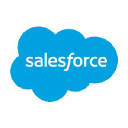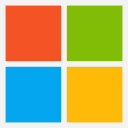Best Healthcare CRM Software in February 2026

Salesforce Health Cloud
- Patient Management
- Integration with EHR
- Care Coordination
- Patient Engagement
- Customizable Dashboards

HubSpot
- Contact Management
- Lead Management
- Marketing Automation
- Custom Reporting
- Customer Support

Zoho CRM
- Patient Management
- Workflow Automation
- Email Marketing
- Customizable Reports
- Third-Party Integrations

Microsoft Dynamics 365
- Patient Insights
- Care Coordination
- EMR Integration
- Personalized Patient Journeys
- Data Analytics

Pipedrive
- Deal Management
- Workflow Automation
- Email Integration
- Insights and Reports
- Mobile Access
In the modern healthcare landscape, the efficient management of patient relationships is crucial. Healthcare Customer Relationship Management (CRM) software plays an indispensable role in ensuring that healthcare providers manage patient data effectively, streamline processes, and provide excellent patient care. This article will explore the importance of healthcare CRM software, its key features, and guide you on how to choose the best option for your needs.
Understanding Healthcare CRM Software
Healthcare CRM software is designed to improve the efficiency and quality of healthcare delivery by managing interactions with patients, improving service quality, and facilitating communication between patients and providers. Unlike traditional CRM systems used in other industries, healthcare CRMs focus more on patient management and regulatory compliance.
Key Features of Healthcare CRM Software
When evaluating healthcare CRM software, it’s important to consider a variety of features that will support your organization’s needs:
-
Patient Engagement: An effective CRM should offer tools for engaging patients at every stage of their healthcare journey. This includes appointment scheduling, reminders, and follow-up communications.
-
Data Management and Security: Managing sensitive patient data securely is paramount. Look for systems that comply with regulations like HIPAA and offer robust data encryption and security features.
-
Integration Capabilities: The CRM should seamlessly integrate with existing systems such as Electronic Health Records (EHR), billing systems, and other third-party applications to ensure a cohesive workflow.
-
Analytics and Reporting: Comprehensive reporting and analytics tools are critical for tracking patient outcomes, managing resources, and improving overall efficiency.
-
Customizable Dashboards: A customizable dashboard allows healthcare providers to tailor the interface according to their specific needs, improving usability and efficiency.
How to Choose the Best Healthcare CRM Software
Selecting the right healthcare CRM requires a thorough understanding of your organization’s needs and goals. Here are some steps to guide your decision-making process:
-
Assess Your Needs: Identify the specific challenges you aim to address with a CRM. This could include improving patient engagement, streamlining operations, or ensuring compliance with regulatory standards.
-
Evaluate Vendor Experience: Consider vendors with proven experience in the healthcare industry. Check customer reviews, case studies, and ask for references.
-
Scalability: Choose a CRM that can grow with your organization. Your selected software should accommodate increasing patient numbers and evolving healthcare processes.
-
Readiness for Innovation: The software should be adaptable to new technologies and innovations in healthcare, allowing you to keep pace with industry advancements.
-
Cost Considerations: While you should never compromise on quality for cost, it’s important to have a clear understanding of the pricing model and ensure it fits within your budget. Examine the total cost of ownership, including implementation, training, and maintenance costs.
Conclusion
Investing in the best healthcare CRM software can significantly enhance patient satisfaction, optimize operations, and ultimately improve the quality of care provided. By carefully evaluating the key features and aligning them with your organization’s unique needs, you can make an informed decision that propels your healthcare service to new heights.
If you're looking to complement your healthcare improvements with healthy lifestyle changes, consider exploring healthy protein snack options and incorporating fiber supplements for gut health into your routine.
This guide provides an overview of what to consider in healthcare CRM software without delving into specific product recommendations. As you navigate your options, ensure that your chosen solution aligns with your overarching goals and operational requirements.
